
Kamala Harris' life has been filled with milestones.
Her elementary school class in the 1970s was the second one to integrate Berkeley schools.
Harris was the first woman elected as San Francisco's district attorney.
She was the first woman to be elected as California's attorney general.
She was the first person of color to be elected to the U.S. Senate from California.
She was first woman elected vice president of the United States.
Now, with President Biden announcing Sunday that he will step aside as the Democratic presidential nominee and endorsing Harris, she is close to becoming the party's Democratic nominee for president.
The Times has been covering Harris extensively for two decades. Here is an overview of her story from our pages.

California roots
From Oakland to Canada and back, with inspiration from India
- Harris was born in Oakland to parents who had come to California to study at UC Berkeley. Her father, who has roots in Jamaica, was an economics professor; her mother, who had roots in India, was a cancer researcher. Harris spent several years as a child in Oakland and Berkeley, but after her parents divorced, she and her mother moved to Canada.
- Harris has spoken of her Indian grandfather as being a key force in her life, and of her interest in government. P.V. Gopalan was an Indian civil servant on assignment in an era of postcolonial ferment. As The Times reported, "Until his death in 1998, Gopalan remained from thousands of miles away a pen pal and guiding influence — accomplished, civic-minded, doting, playful — who helped kindle Harris' interest in public service."
- From seventh grade to the end of high school, Harris and her mother lived in Montreal and its Westmount neighborhood.
Harris earned her bachelor's degree at Howard University in 1986.
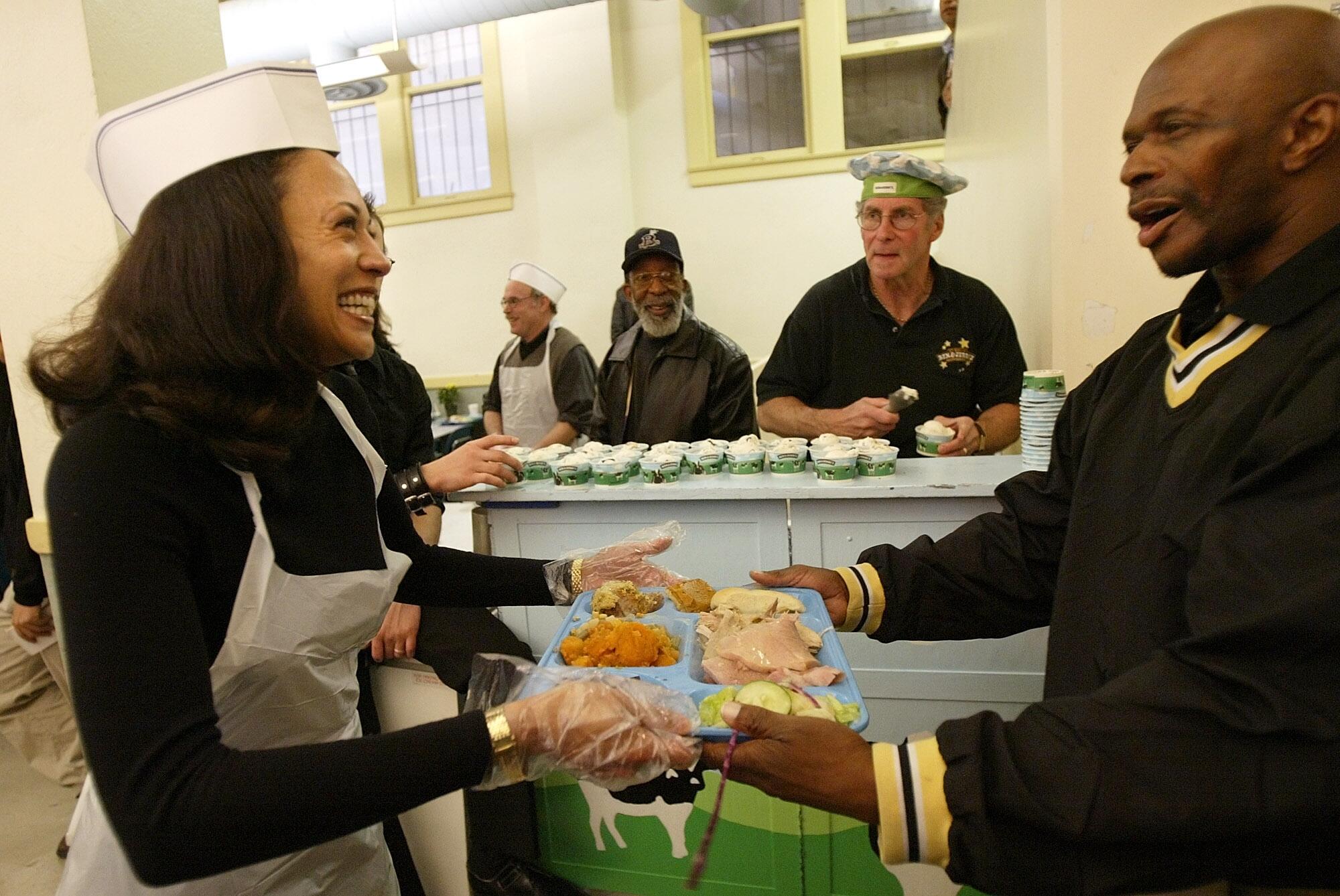 (Jeff Chiu / Associated Press)
(Jeff Chiu / Associated Press)- After graduating from the University of California Hastings College of Law in San Francisco, Harris passed the bar examination and worked her way up in the Alameda County and San Francisco County district attorney's offices. Harris was San Francisco district attorney from 2004 to 2010.
- Harris started dating entertainment attorney Doug Emhoff and permanently relocated to Brentwood by the time they married in 2014.
- In 2016, Harris was elected to the U.S. Senate, leaving her California job to take office early in 2017.
More to Read
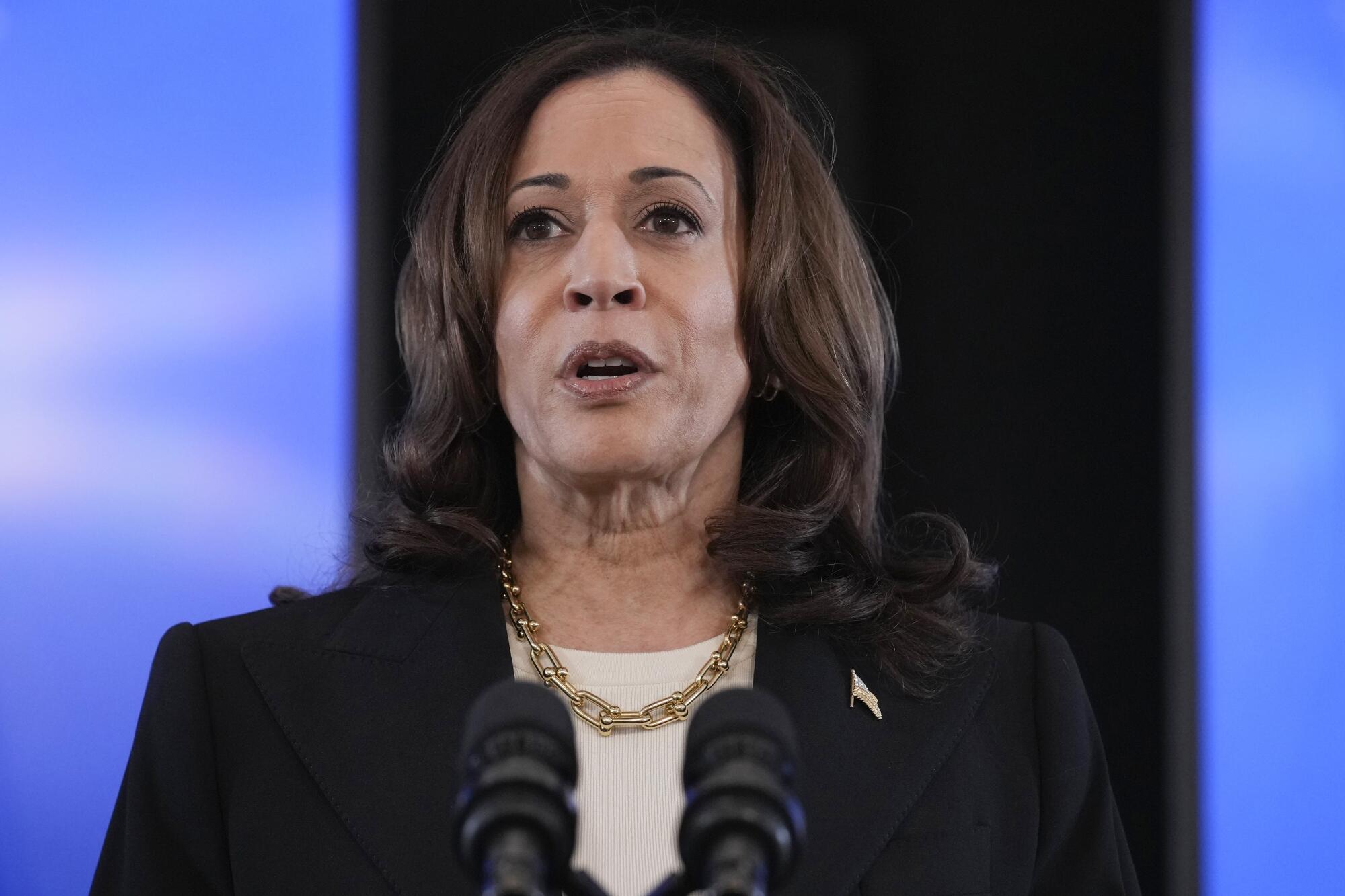
Political beginnings
A prosecutor with an ambition for Bay Area politics
- Harris got her start in Bay Area politics and law enforcement. She prosecuted murder, rape, assault and drug cases at the Alameda County district attorney's office in Oakland from 1990 to 1998.
- San Francisco Dist. Atty. Terence Hallinan had hired Harris in 1998 to lead his career-criminal unit. She ended up running against him and winning in 2003. The campaign was bruising, with critics citing her relationship with San Francisco's colorful and controversial Mayor Willie Brown. Her record as a prosecutor included some progressive policies but other ones that critics would later say were too "tough on crime."
In 2010, Harris moved to statewide politics, defeating Republican Steve Cooley for attorney general.
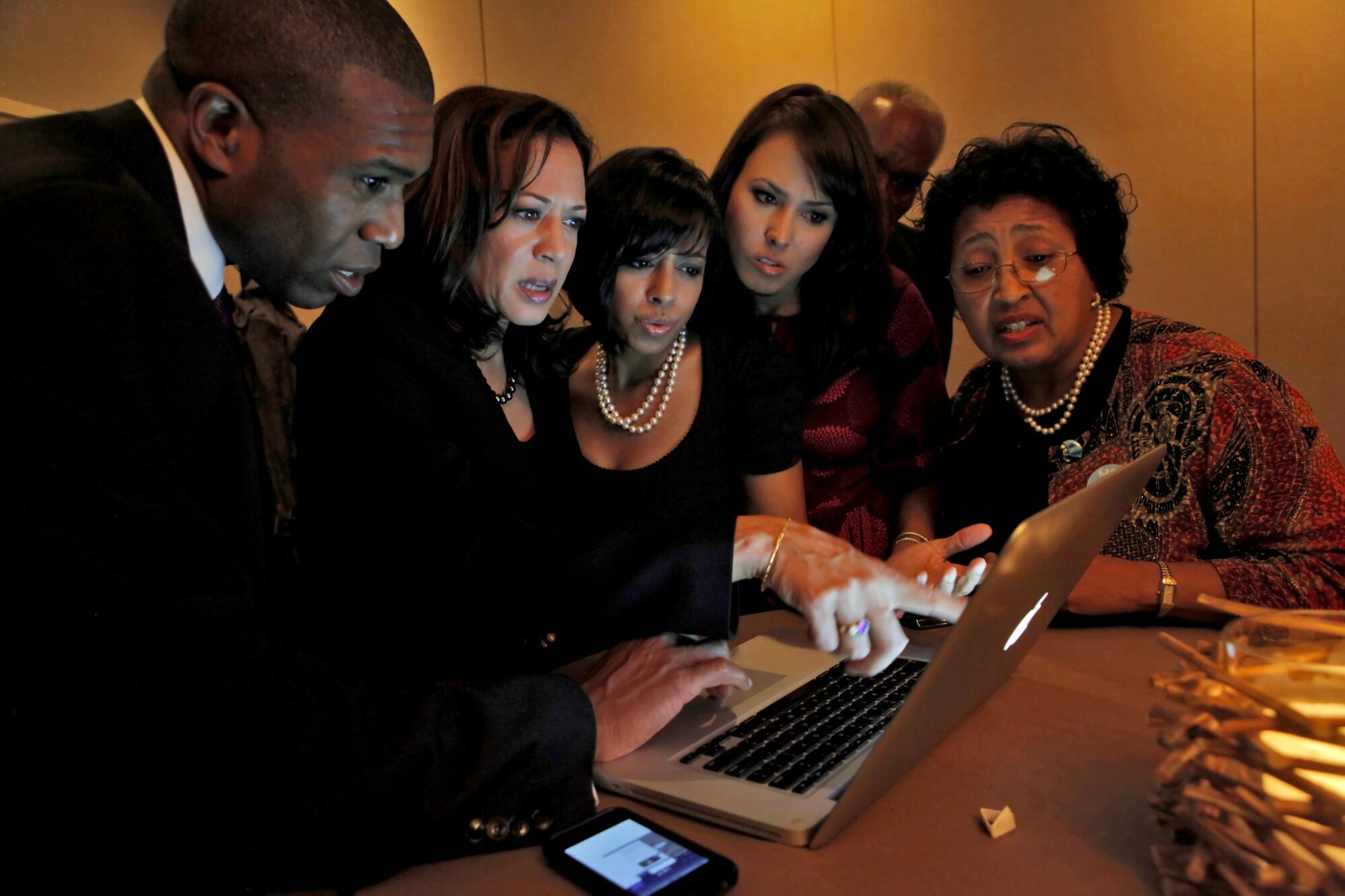 Tony West, left, and Kamala Harris look up the poll results with family Maya Harris, Meena Harris and parents Frank and Peggy Harris on Nov. 2, 2010, in San Francisco.(San Francisco Chronicle/Hearst N/Hearst Newspapers via Getty Imag)
Tony West, left, and Kamala Harris look up the poll results with family Maya Harris, Meena Harris and parents Frank and Peggy Harris on Nov. 2, 2010, in San Francisco.(San Francisco Chronicle/Hearst N/Hearst Newspapers via Getty Imag)- As attorney general, she started implicit-bias training for law enforcement, and as district attorney she launched a program that enabled first-time nonviolent offenders to get their charges dismissed if they finished job training. Critics have faulted her, though, for working in court to uphold California's death penalty, despite her personal opposition, and for her threats to jail parents of chronically truant schoolchildren.
- In 2016, The Times editorial board praised Harris for being willing to stand up for the little guy as attorney general. But it issued this warning: "Harris has at times seemed more focused on her political career than on the job she was elected to do. She has been too cautious and unwilling to stake out a position on controversial issues, even when her voice would have been valuable to the debate."
- Harris gained national attention for her efforts to have courts overturn California's ban on gay marriage and allow same-sex couples to legally marry.
More to Read
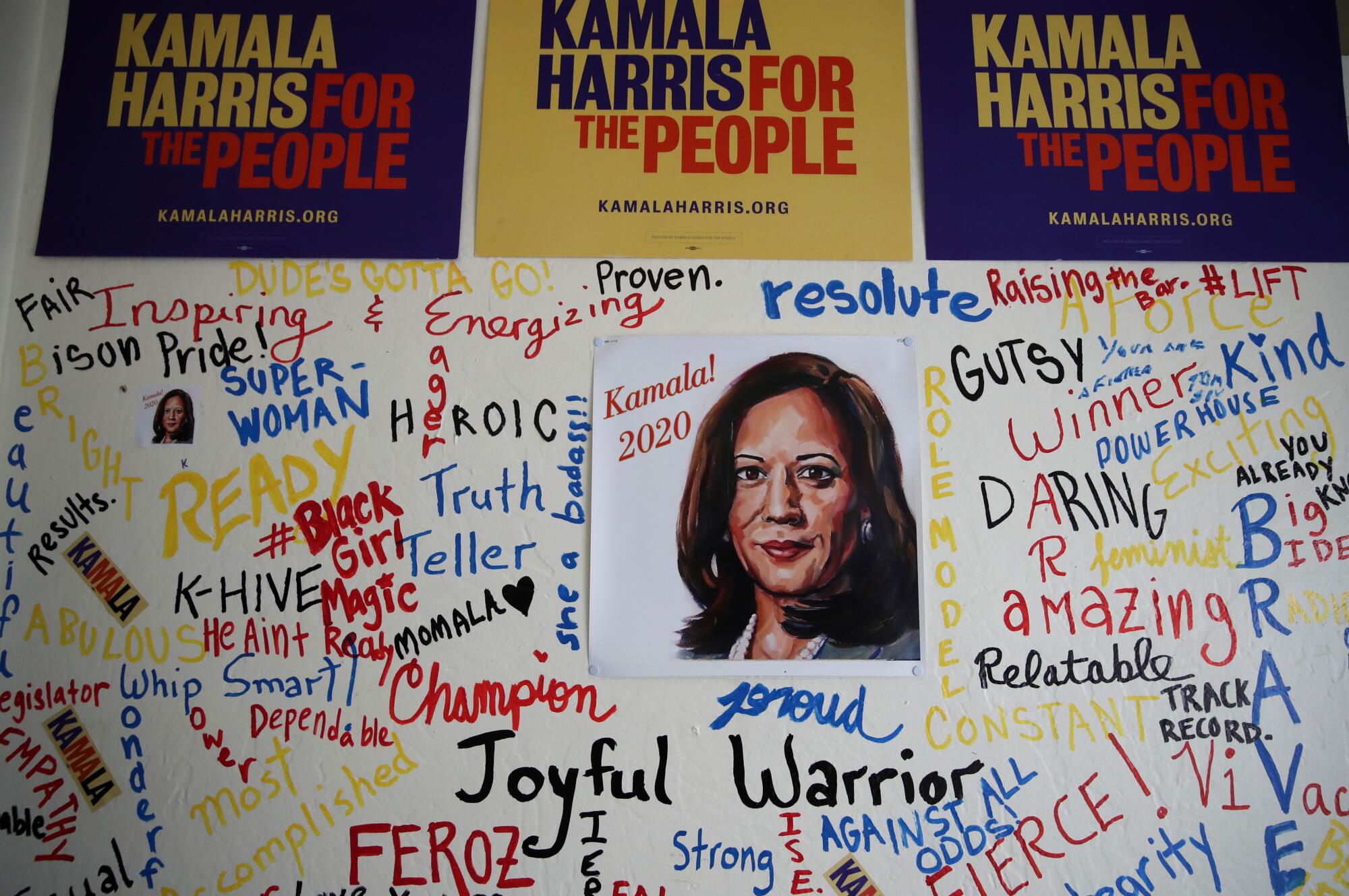
National stage
Breaking barriers with a rise to Washington
- Her next move was the 2016 race to replace the retiring Barbara Boxer as U.S. senator. With Democrats dominant in California, it came down to a history-making battle between her and Southern California's Loretta Sanchez. When Harris won, The Times declared that she tore "down a color barrier that has stood for as long as California statehood."
- In 2019, she began her campaign for U.S. president. Early on she built strong momentum, drawing a crowd of roughly 20,000 to a lavish Oakland rally. She raised $1.5 million in just 24 hours. She boasted a string of endorsements from California politicians.
- But her campaign slowly sputtered. As The Times reported in March 2019, the fall "stems in part from Harris' failure to present a compelling case for her candidacy beyond her background as a prosecutor, her buoyant personality and a deep contempt — shared by others in the contest — for President Trump."
- In December, she suspended her campaign. The Times called it a "lackluster end to an initially soaring presidential bid premised on the California senator's personal biography and prosecutorial acumen. Ultimately, her run foundered with a muddled purpose, campaign infighting and an inability to sustain support from vital Democratic voting blocs, particularly African Americans."
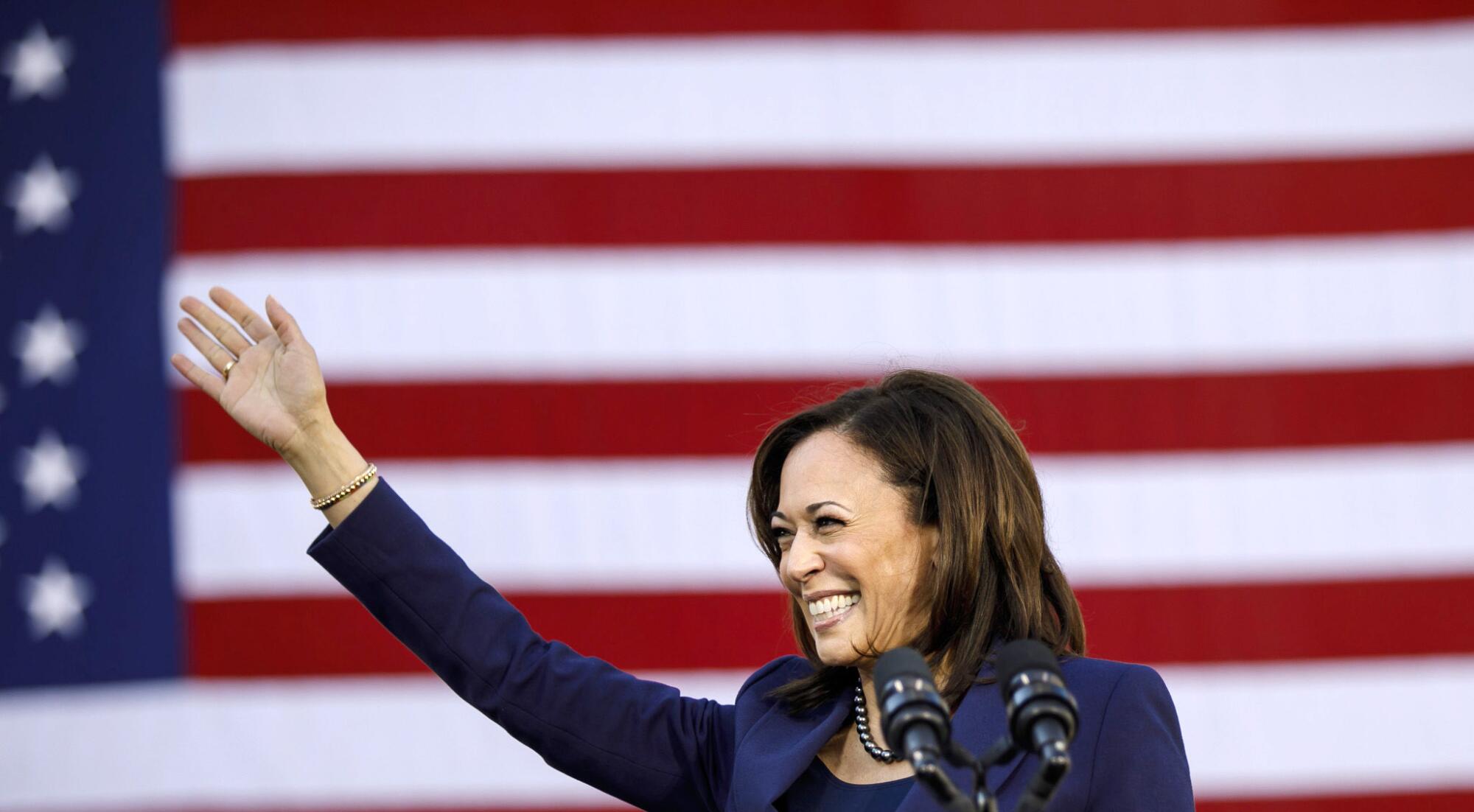
- Biden locked in the nomination, but there was no guarantee he would pick her as his running mate. Some felt the Biden team was angry at her treatment of him during the campaign. But Biden ended up selecting Harris. The Times said at the time: "In many ways, Harris is a safe pick — broadly popular in the Democratic Party and well acquainted with the rigors of a national campaign. But her selection also carries symbolic heft in this moment when race relations are at top of mind for voters."
- Harris held her own during her debate with Vice President Mike Pence and serving as an effective surrogate. The Times reported "Those who have spoken with Harris say she sees the changes — in style, in her approach to campaigning, in the faces surrounding her — worth the goals she now pursues: replacing Trump with Biden and becoming the first female vice president in history."
- Harris was elected as the nation's first female vice president (and first person of color to be vice president) in November 2020.
More to Read
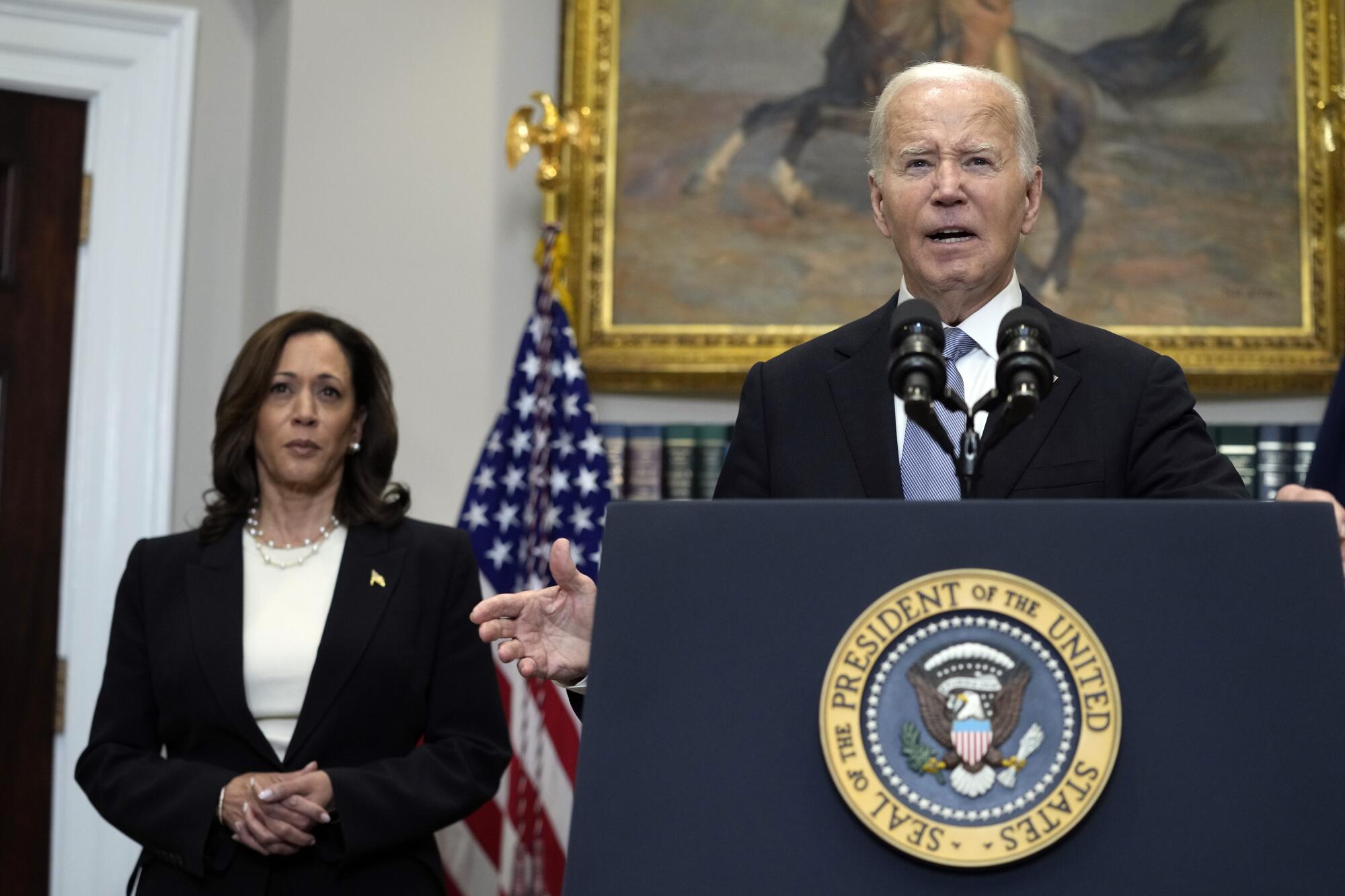
Vice president
Struggling to find her footing in a big job
- Harris made history when she took office.
- But her term has been marked by successes and struggles.
- After her first year in office, The Times offered this assessment: "Harris has struggled to tell her own story, leaving others to fill the void. Conservative media have attacked her while mainstream outlets have published a string of stories about low morale and high staff turnover in her office. Like many vice presidents, Harris is learning how hard it is to define herself as a No. 2.
- She was handed a difficult assignment in those early months: Leading diplomatic efforts to curb migration from Central America. There were early controversies, such as when she told would-be immigrants not to come to the United States. As the immigration issue has become hot in the 2024 race, Harris faces tough questions about her role in Biden policies.
- Democrats worried about Harris' lackluster poll numbers as they considered a leader of the party after Biden. "Harris has become a source of tension among Democrats, as growing worries over Harris' political stature collide with concerns that any move to sideline her would alienate the voters needed to win elections and undercut the party's promise of equity," The Times wrote in 2021.
- After the Supreme Court struck down Roe vs. Wade, Harris emerged as a leading voice in protecting reproductive rights.
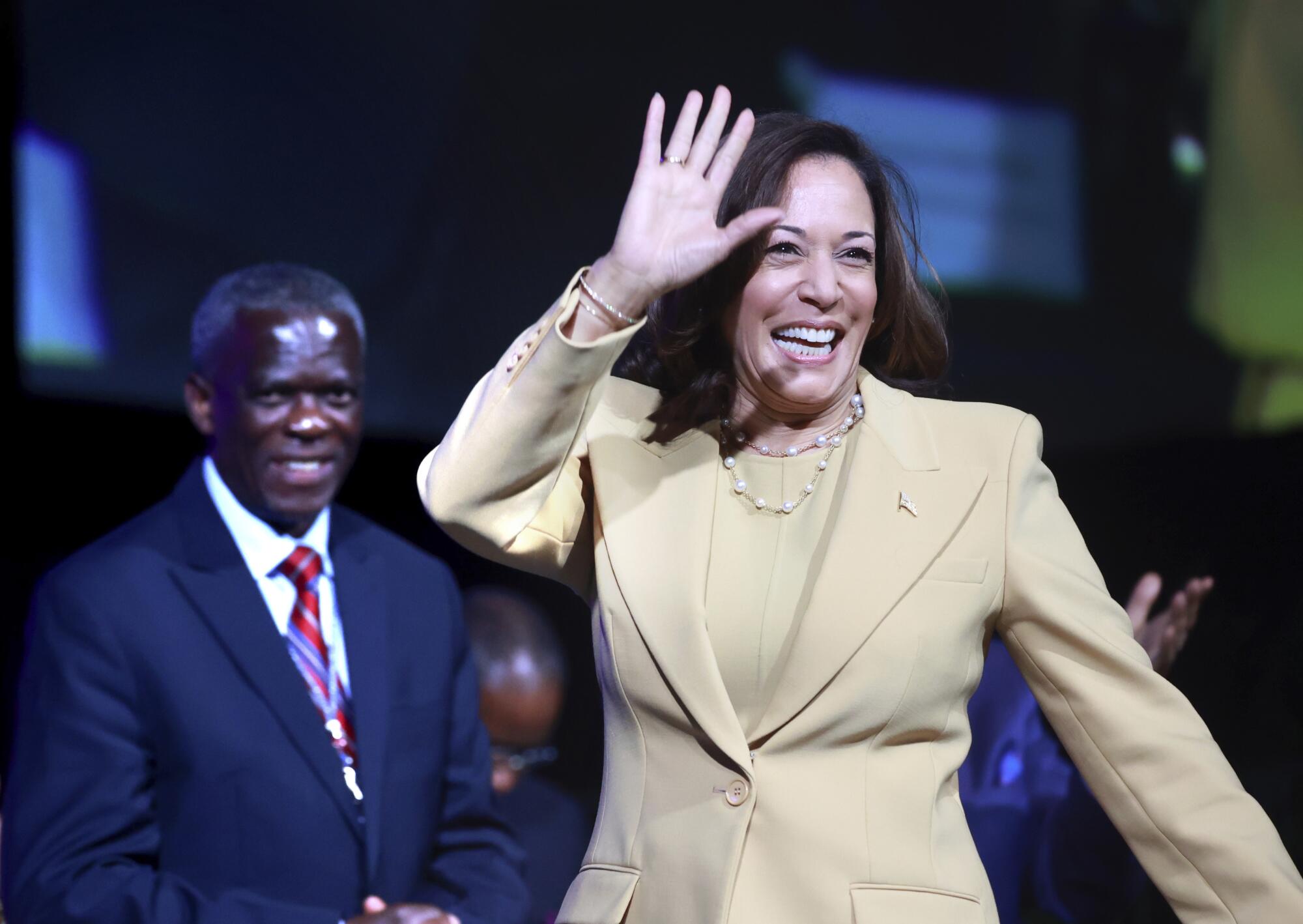
- Harris has endured unprecedented levels of hate on social media. "Research shows that Harris may be the most targeted American politician on the internet, one who checks every box for the haters of the fever swamps: She's a woman, she's a person of color and she holds power," The Times found.
- Before Biden's disastrous debate performance, Harris was still struggling to present herself as a successor. "More than three years into the oldest president in history's first term, his understudy has failed to win over a majority of voters or convince them that she is ready to step in if Biden falters, according to polls," The Times reported in April.
- Harris' star rose as Democrats began to call on Biden to step aside and end his reelection campaign. She had remained publicly supportive of Biden, even as calls for her to replace him at the head of the ticket grew louder.
More to Read
― The Lincoln Project

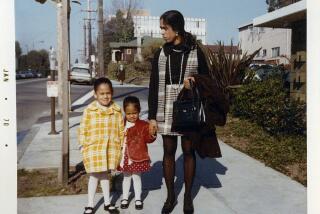
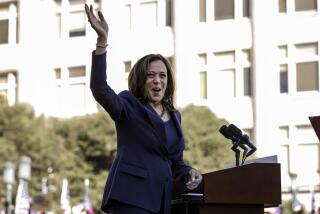
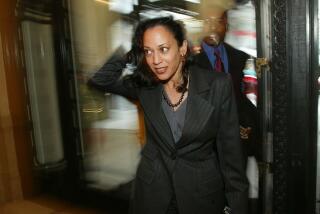
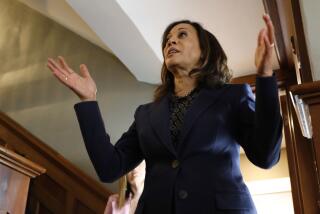

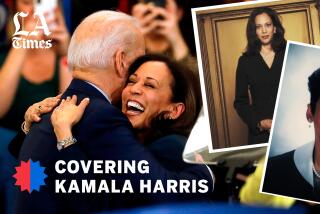
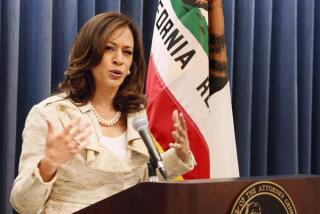

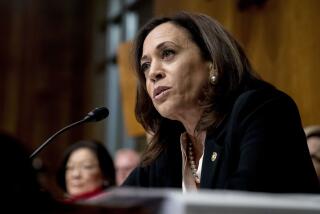
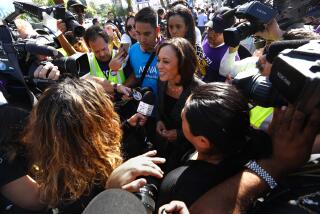
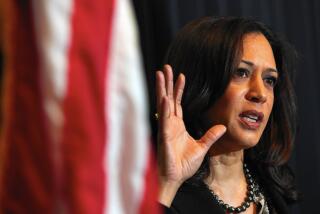

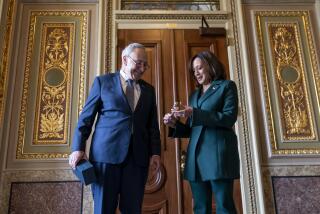

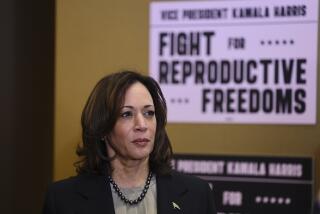

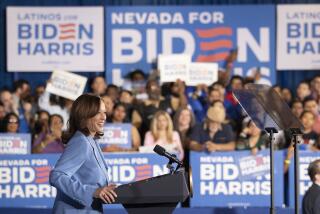
No comments:
Post a Comment